Calories in Cereals ready-to-eat, NATURE'S PATH, Organic FLAX PLUS, Pumpkin Granola
387 calories
Serving Size 0 cup (1 NLEA serving) (about 83 g)
There is no photo available for this food item however it should be similar in terms of nutritional content and calorie density as the following items. You can use these for references.
(99% similar)
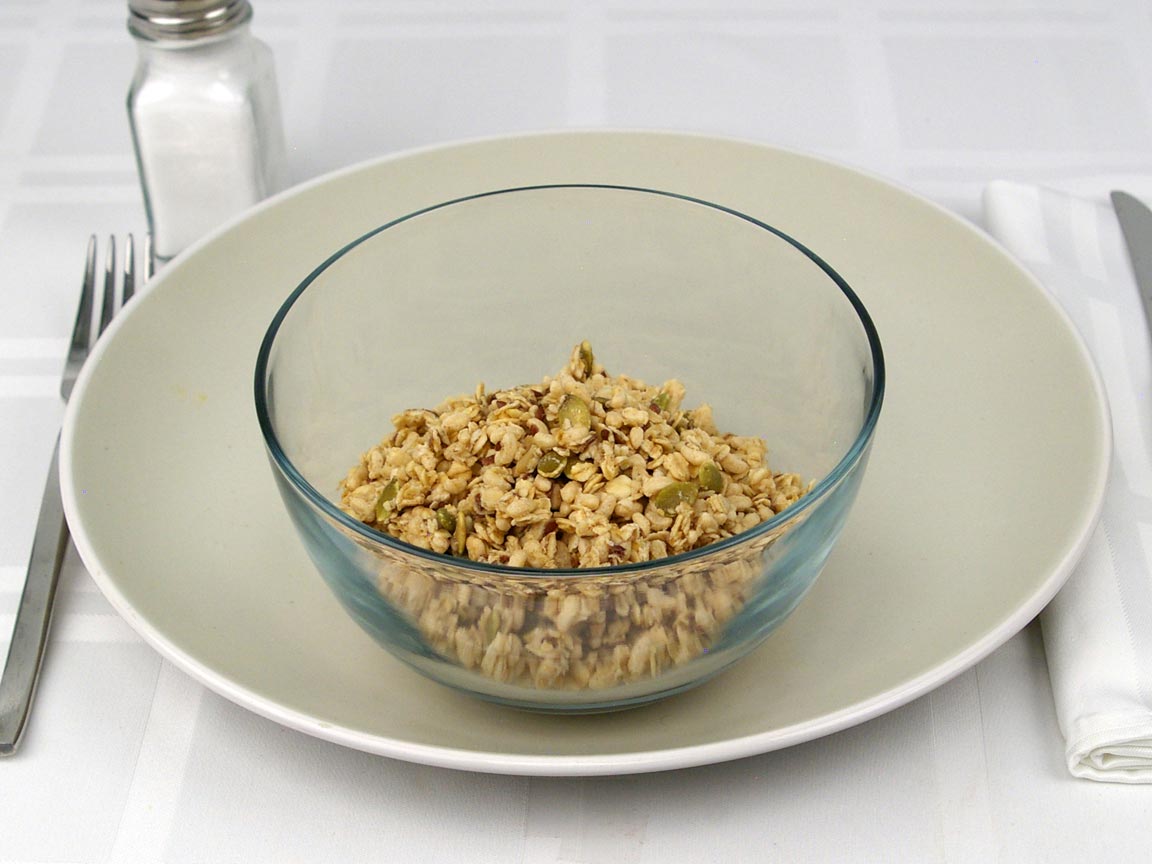
Pumpkin Flax Granola Cereal
(97% similar)
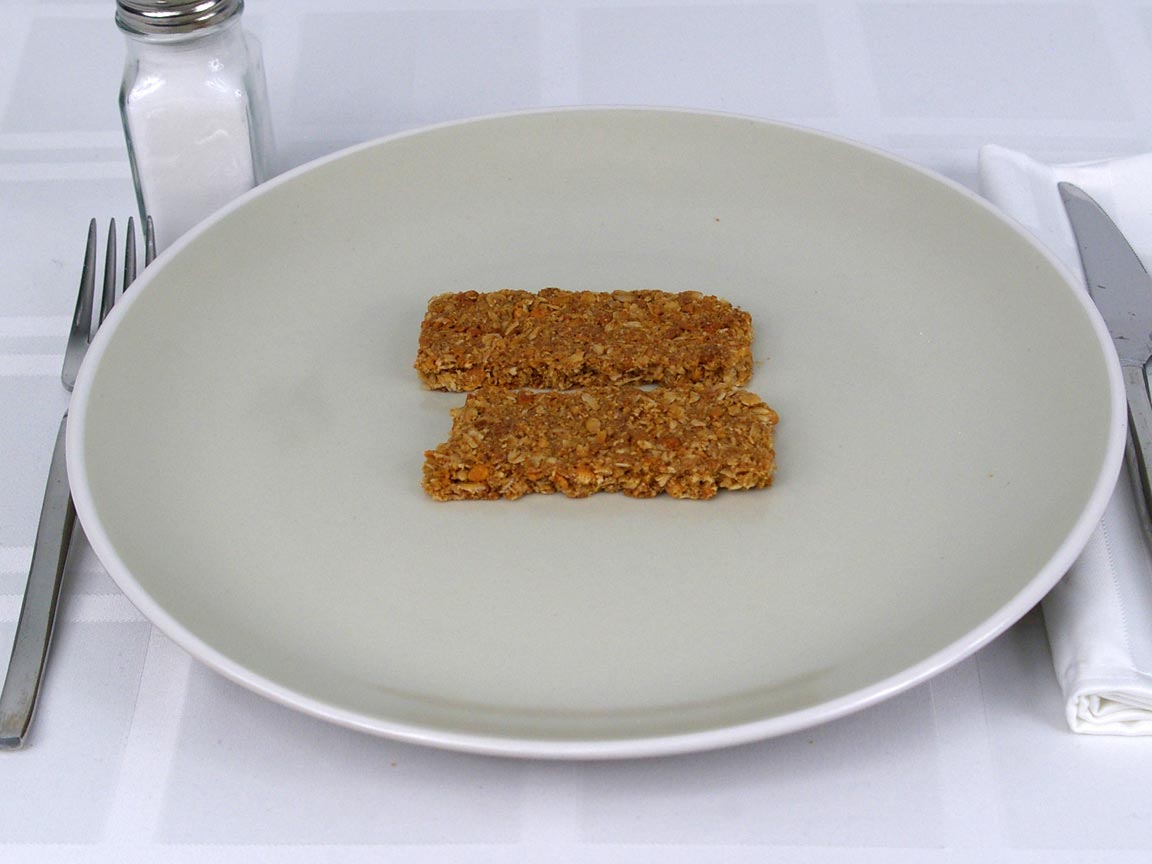
Nature Valley Crunchy Coconut Granola Bar
(97% similar)
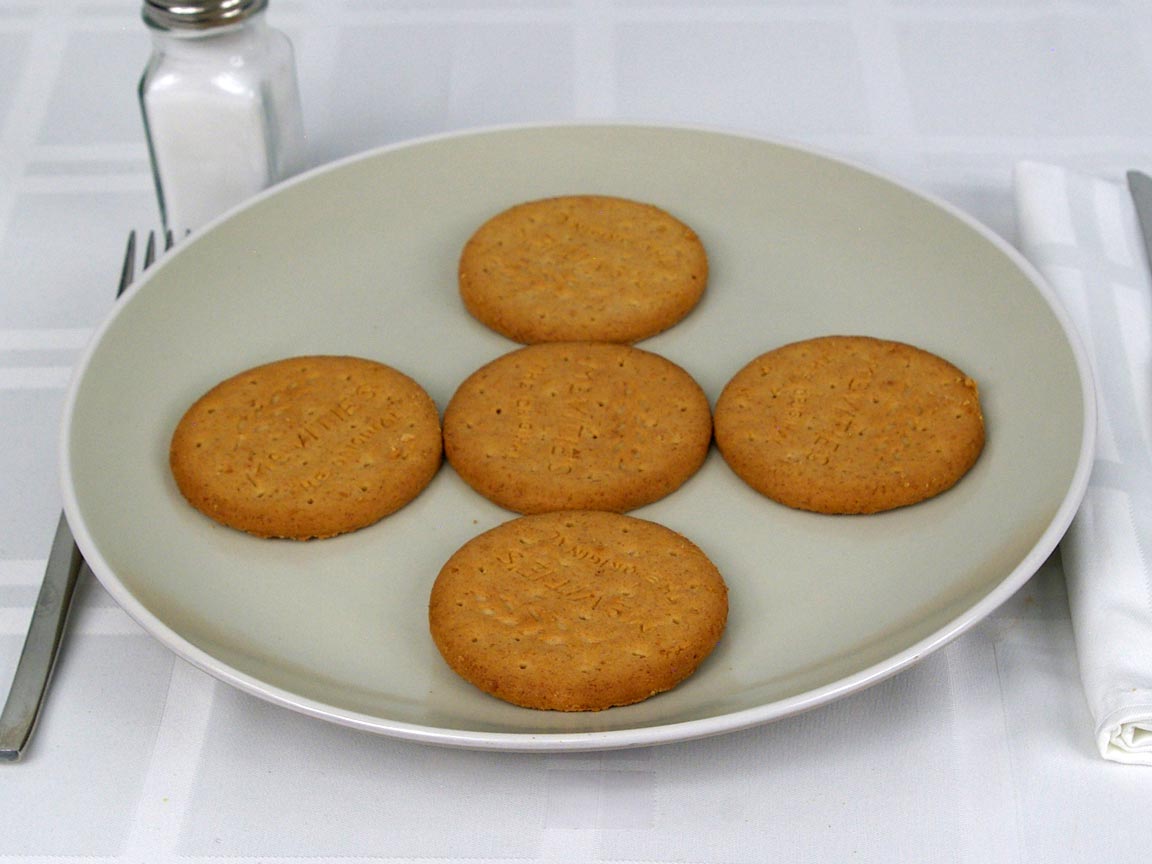
Digestives Wheat Biscuit
(97% similar)
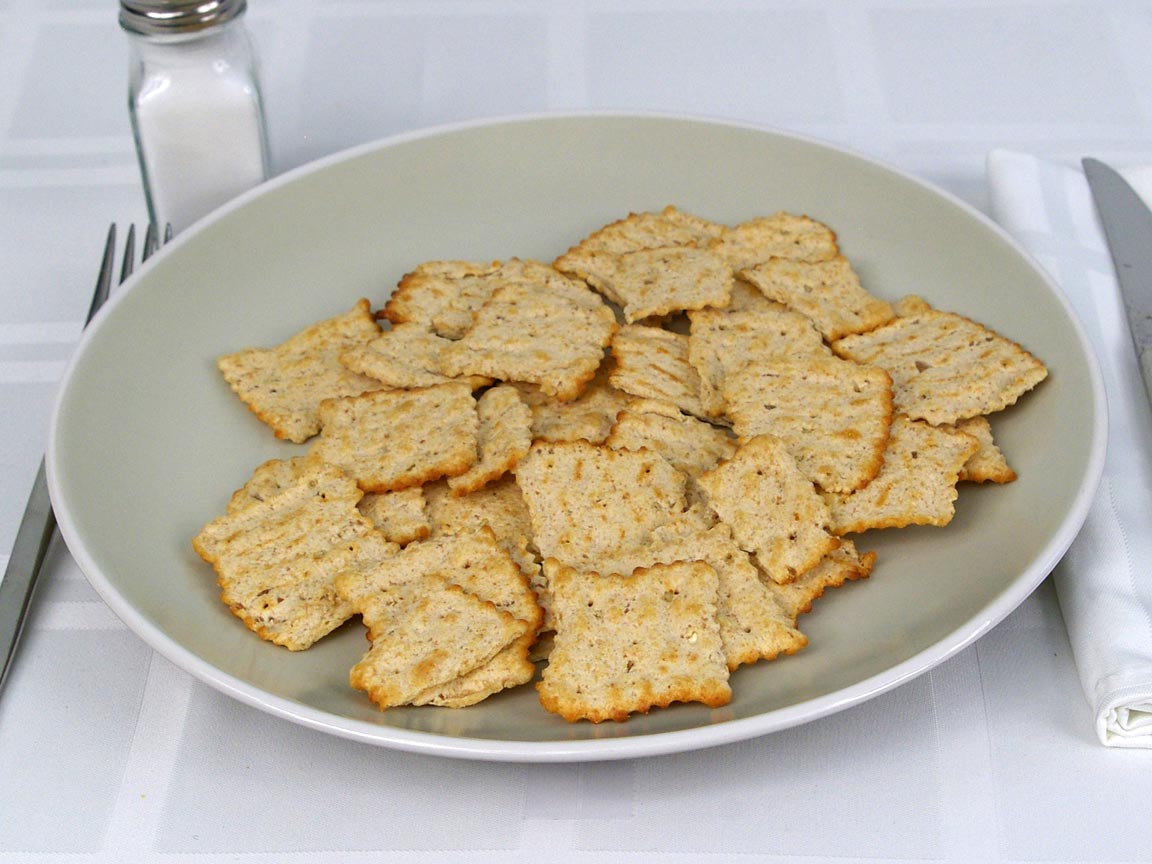
Wheat Thins Toasted Chips
(97% similar)
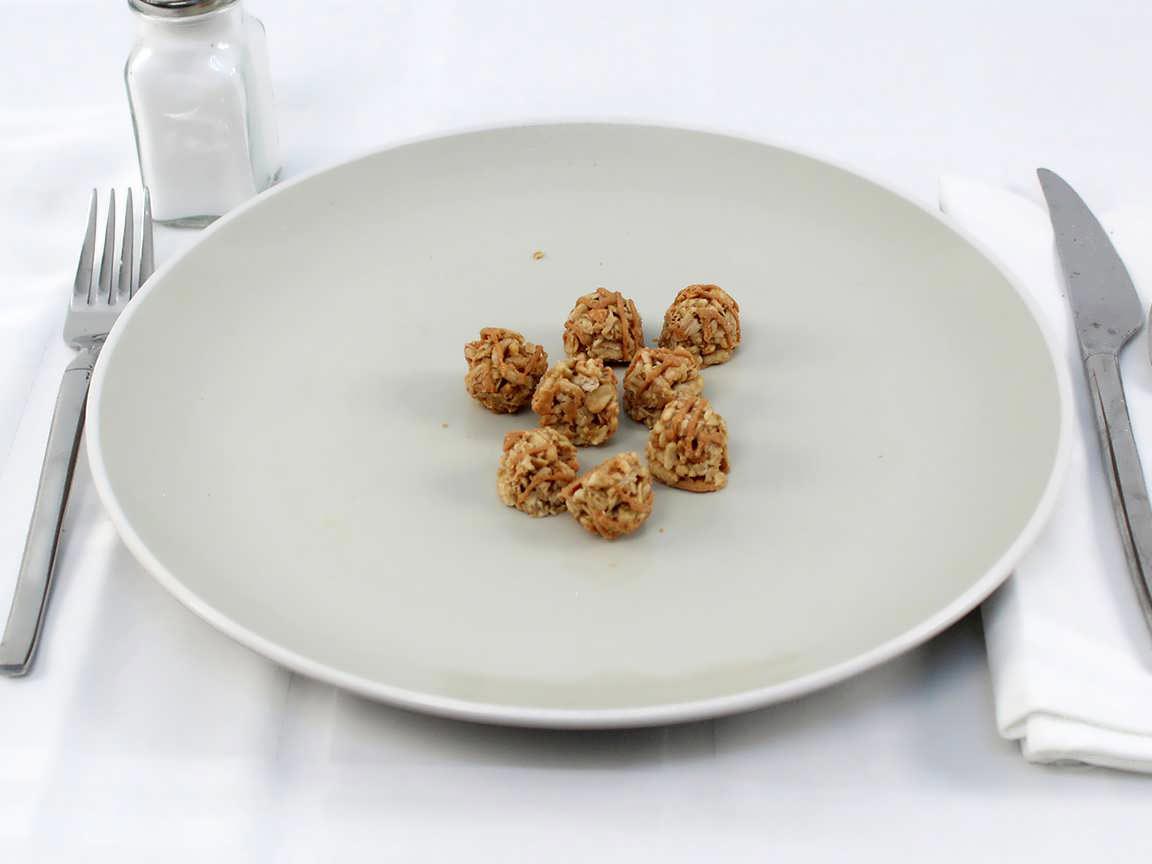
Chewy Bites Peanut Butter & Honey
(96% similar)
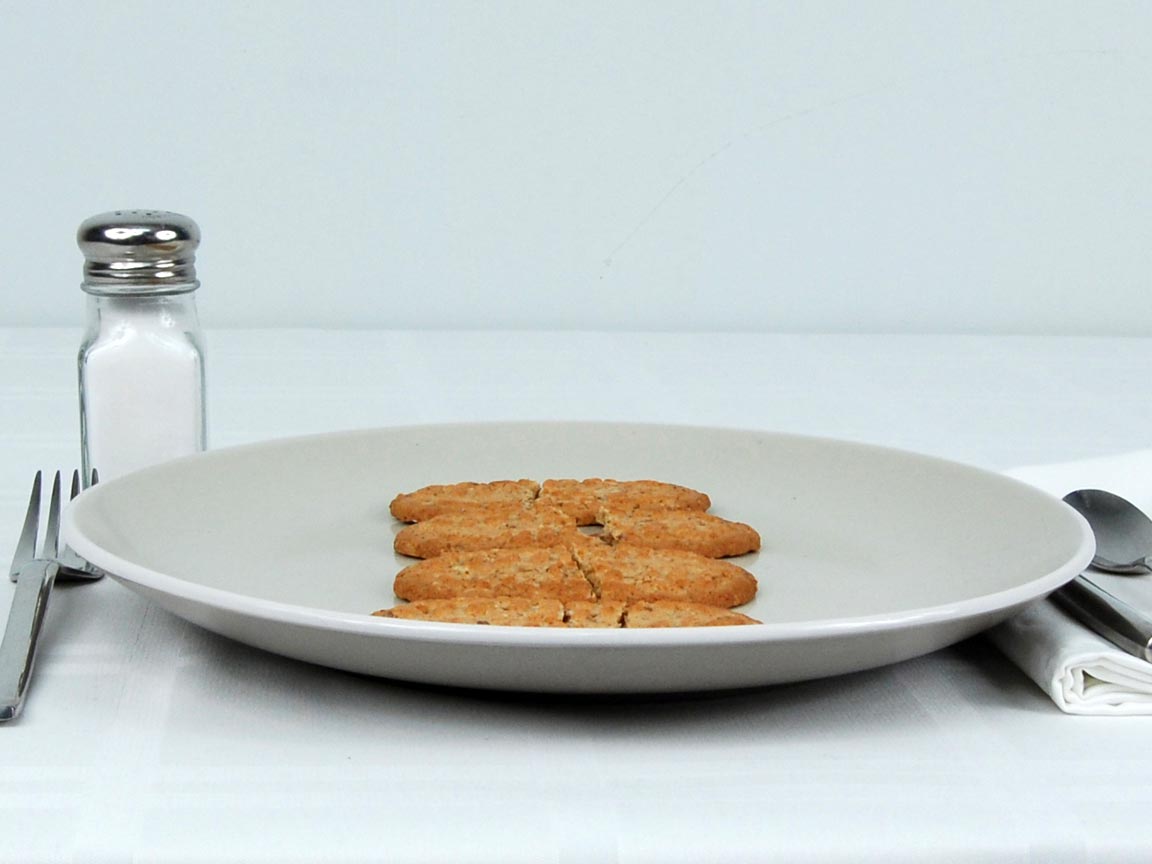
Bel Vita Breakfast Biscuit
Serving Size 0 cup (1 NLEA serving) (about 83 g)
| Amount Per Serving | ||
|---|---|---|
| Calories 387 | Calories from Fat 136 | |
| % Daily Value* | ||
|
Total Fat
15 |
23 |
|
|
Saturated Fat
2 |
10 |
|
|
Trans Fat
0 |
||
|
Cholesterol
0 |
0 |
|
|
Sodium
61 |
3 |
|
|
Total Carbohydrate
54 |
18 |
|
|
Dietary Fiber
6 |
24 |
|
|
Sugars
14 |
||
|
Protein
9 |
||
* Percent Daily Values are based on a 2,000 calorie diet. Your daily values may be higher or lower depending on your calorie needs.
Available portions
Food analysis
High In Fiber
High In Sugar
High Calorie Density
There is 387 calories in 82 grams of Cereals ready.
With 470 calories per 100 grams, this food would be considered a High calorie density food.
Be carefull, High calorie density food tends to add up calories quickly and you should be carefull with your portion size if you are trying to lose weight.
Cereals ready is High in carbohydrates, Low in proteins and Medium in fats. You can look at the macronutrients graph below for a detailed ratio.
It has High quantity of fibers but also High quantity of sugars. It is recomended to consume less than 25 grams of sugars per day.
With 58 grams of "Net carbohydrates" per 100 grams,
it not safe to consume if you are following a Keto or Ketosis diet.
Related Searches
granola
pumpkin
plus
flax
organic
path
nature's
ready-to-eat
cereals
Macronutrients split
56.2% Carbohydrates
34.5% Fats
Nutrients and how much we eat of it play an important role on our health and body composition. To learn more on theses, check our blog posts on Proteins, Carbohydrates and Fats.